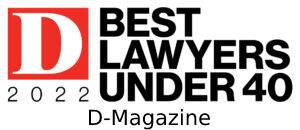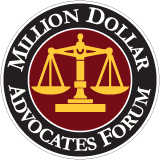Placing a loved one in a nursing home is a gut-wrenching decision. Eventually, some elderly people lose the ability to care for themselves and need the care of a facility. However, the elderly are often vulnerable targets for nursing home neglect and abuse. Moreover, sometimes older adults cannot speak up for themselves. Therefore, it is up to the family to look for signs of nursing home abuse.
Unfortunately, neglect and abuse occur often. Moreover, injuries and death from neglect and abuse are often preventable. Thus, loved ones need to act without delay if they see signs of elder abuse.
At Hartley Law Firm, we are seasoned Dallas nursing home abuse lawyers. If you see signs of nursing home neglect or elder abuse, we can fight for your loved one. Contact us today.
What Is Nursing Home Abuse?
Nursing home abuse is a form of elder abuse that occurs in a clinical setting. Nursing home staff commit elder abuse when they fail to act or commit an intentional act that causes or creates a risk of harm to an adult over the age of 60.
According to the Centers for Disease Control and Prevention, one out of four people over 60 has experienced abuse. Moreover, the World Health Organization reported higher abuse in nursing homes. Disturbingly, two out of three staff members in nursing homes have confessed to committing “elder abuse in the past year.”
What Are the Signs of Nursing Home Abuse?
Nursing home abuse can manifest in physical and psychological signs. Moreover, sometimes older adults have difficulty speaking up. Therefore, it is vital to check in on older adults, monitor their care, and document any suspected abuse.
Signs of Psychological Abuse
A loved one suffering from psychological abuse in a nursing home may become sad and withdrawn. Psychological abuse can include harassment, intimidation, and humiliation. Without intervention, psychological abuse can develop into anxiety, panic, depression, and post-traumatic stress disorder.
Signs of Physical Abuse
Physical abuse is a frequent problem in nursing homes. Physical abuse in nursing homes can include hitting, kicking, pushing, slapping, and even burning. The Associated Press reported that more than one in four nursing home abuse cases goes unreported. Therefore, pay attention to signs of physical abuse. These signs can include unexplained bruises, swelling, fractures, wounds, and broken bones.
Signs of Sexual Abuse
Sexual abuse in nursing homes is not as common as other forms of abuse. However, it is disturbing and does occur. In 2017, according to the WHO, 1.9% of nursing home residents or their representatives reported a sexual assault. CNN reported that there were 251 complaints of sexual assault in Texas nursing homes.
Forms of nursing home sexual abuse can include:
- Unwanted touching,
- Rape,
- Forced nudity, and
- Taking sexually explicit photos of residents.
It is essential to pay attention to signs of sexual abuse. Your loved one may become withdrawn and agitated. Abusers can include family members, staff, other visitors, and residents.
Financial Abuse in Nursing Homes
Generally, the elderly are at an increased risk for fraud and theft. You may feel at ease as your loved one is under the care of professionals. However, the elderly are at risk from financial exploitation in nursing homes. Examples of financial exploitation can include the theft of valuables, identity theft, and unauthorized use of credit and debit cards.
What Is Nursing Home Neglect?
Nursing home neglect is when a caretaker fails to provide necessary goods or services to avoid physical or emotional pain. Nursing home neglect came to the forefront during the pandemic. However, neglect in nursing homes was an issue—even before the coronavirus.
Bedsores
Bedsores are a telltale sign of nursing home neglect. Bedsores develop from lying in bed or sitting in a wheelchair for a prolonged period. Bedsores develop when a nursing home does not properly care for its patient. If left untreated, bedsores can become infected and lead to sepsis and death.
Weight Loss and Dehydration
A nursing home might have committed neglect if it did not make sure a patient regularly eats and drinks. Rapid weight loss can signify that a patient is dehydrated and not getting enough protein. Dehydration is a severe medical condition that often leads to hospital admission.
Poor Hygiene
Nursing homes are responsible for managing a patient’s hygiene—changing clothes, bathing, cutting fingernails, changing diapers, brushing teeth, etc. Poor hygiene can lead to severe medical conditions. Moreover, poor hygiene can breed germs and spread bacterial infections throughout the nursing home.
Slip and Falls in Nursing Homes
Slip and falls in nursing homes are often related to neglect. Falls are not limited to dimly lit areas with slick surfaces. Slip and falls in nursing homes can occur when a nurse improperly moves a patient. Unfortunately, slips and falls among the elderly can result in painful injuries that require lengthy hospital stays, surgery, and even death.
When Should You Contact Dallas Nursing Home Abuse Attorney?
Staff and management in nursing homes are often transient. Therefore, it can be hard to resolve complaints about your loved one’s care. Our Dallas nursing home abuse attorneys can help protect your loved ones and fight abuse. We pride ourselves on being accessible to our clients and have a strong track record of favorable results. If your loved one is suffering from abuse or neglect, contact us today.
The Hartley Law Firm handles other types of cases as well, including:
- Personal Injury
- Wrongful Death
- Bike Accidents
- Head and Brain Injury
- Burn Accident Injury
- Bus Crash Accidents
- Catastrophic Injuries
- Construction Site Accidents
- Motorcycle Accidents
- Pedestrian Accidents
- Uber & Lyft Accidents
- Car Accidents
- Trucking Accidents
- Premises Liability
- Worksite Accident Injury
- Dog Attack
- Sexual Abuse
- Medical Malpractice
- Oil Field Accidents
- Spinal Cord Injury
- Commercial Litigation









